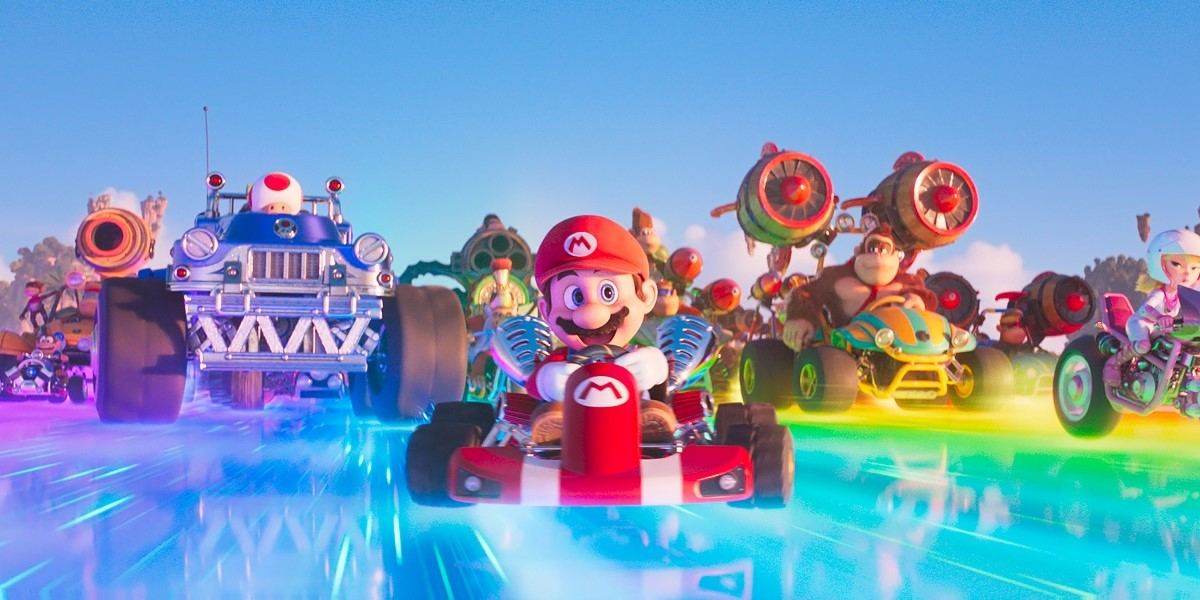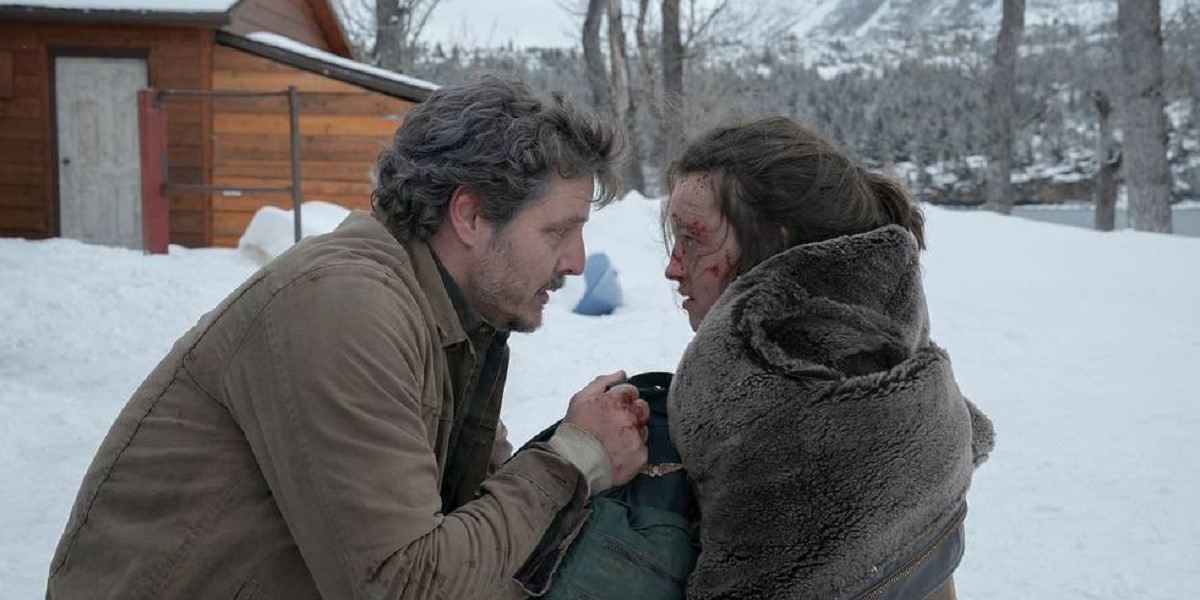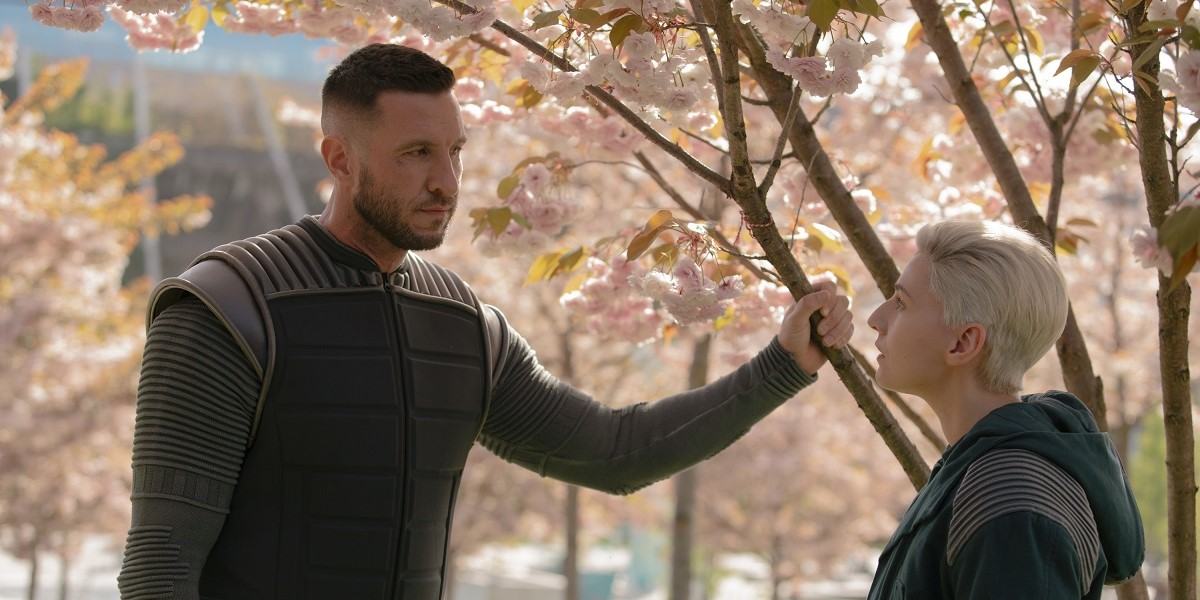
“The Super Mario Bros. Movie” is being celebrated in large part because it matches the colorful spirit of the games.
13:14 JST, April 16, 2023
So far in 2023, two of the biggest hits on TV and film are based on video games – “The Last of Us” and “The Super Mario Bros. Movie” – and this train won’t be stopping anytime soon. But producers and showrunners should be cautious about how they adapt these properties.
The Mario film had the top opening of the year, supplanting key Phase 5 Marvel movie “Ant-Man and the Wasp: Quantumania,” and has earned more than $500 million total. Meanwhile, Sony PlayStation’s “The Last of Us” was adapted to HBO and became Max’s most-watched show ever in Europe and Latin America, besting “House of Dragon” in total viewership.
The one-two punch from the video game industry in 2023 has parallels to how Marvel’s “Iron Man” and the Christopher Nolan-directed “The Dark Knight” broke the levee in 2008 for the eventual superhero movie deluge. This is a loud sign: Video game adaptations, when done right, are big business. “The Last of Us” has a good shot at winning awards, something superhero films have struggled to do.
For decades, there’s been a “video game curse,” where attempts to adapt the medium to film have often fallen flat with audiences and critics. Part of that is because video games don’t often adapt well to linear storytelling formats. Playing games is far more experiential and engaging than reading books or watching TV. The latest failure was the 2021 “Resident Evil” movie, which earned just $42 million worldwide.
I’ve watched every major video game adaptation ever made for U.S. release, and I’ve discovered rules of thumb for how to make one that works. Here are four main ones.

Pedro Pascal and Bella Ramsey in “The Last of Us” on HBO, which won critical acclaim for its performances and for sticking close to the 2013 game’s script.
Respect the spirit of the source material
The Mario movie is a fun, colorful visual feast with joyful orchestrated tracks pulling from various classic music genres like jazz and reggae, all much like the games. “The Last of Us” was faithful to the game’s most dramatic moments, almost repeating the scenes line by line. The recent Sonic the Hedgehog films were also box offices successes, only now dwarfed by the Mario film’s record-breaking achievements. While the Sonic movies incorporated human drama into a game series with few humans, they still retained the wholesome earnestness of the games.
Meanwhile, Netflix’s 2022 “Resident Evil” series was an absolute bust, canceled after one season. The show was nearly unrecognizable from the game, often resembling a CW Network teen drama when it should’ve been about zombies and bioterrorism. The tone of the show was completely off, way too intentional in its attempt to channel modern comedy trends, when “Resident Evil” as a game series is all about camp.
Paramount’s “Halo” TV show was touted by the studio as a modest success, but it was a critical bomb. Plus, it was nearly unanimous from the millions in the “Halo” community that the show failed to respect the source material. “Halo” is a game series about cybernetic super soldier Master Chief (think Captain America but way more murderous and powerful) up against alien aggressors. The show was muddled by its “humanizing” of a character who was beloved because his stoicism in the face of impossible odds fired up players for decades. Master Chief was hard to cheer for when he was brooding like Batman half the time. He also had sex in a confusing and forced romance subplot, a breach of the original character’s celibacy.
Use audio and visual assets from the games
Another flaw of the “Halo” show is that it barely used any of the iconic score from the original games, instead only using few motifs. This was a misstep, because the hard-charging melodies composed by Marty O’Donnell were a large part of why the Halo games are so memorable and beloved.
One of the more universal criticisms of the Mario movie were the pop-song needle drops. Why was Mario riding along in a kart with a monkey to “Take On Me” when any track from a Donkey Kong or Mario Kart game would’ve been more appropriate? The film still succeeds because most of it are musical cues from the classic Mario games.
“The Last of Us” also largely used the music created for the game by Gustavo Santaolalla, the Oscar-winning Argentine composer. Netflix’s “Cyberpunk 2077 Edgerunners” anime show used licensed music from the radio stations within the original game. Both shows also largely replicated locations seen from the games. “Last of Us” spent millions to re-create entire cities from the game, while Netflix’s “Cyberpunk” animators used the architecture of the game’s Night City for all of its locations. You can visit just about every location from the show within the game.
All of these songs and visuals establish a tone for these stories. To change them in film and TV is to misunderstand what made the stories special.

Pablo Schreiber as Master Chief and Charlie Murphy as Makee in “Halo” on Paramount Plus. The characters’ romantic subplot angered fans of the “Halo” games.
Pay up for good talent
There’s no doubt Pedro Pascal and Bella Ramsey of “The Last of Us” will be front-runners for Emmy awards this year. Everyone doubted Chris Pratt’s commitment to the role, but he turned out a pretty winning performance as Mario. Even though none of those people resemble the game’s characters, the filmmakers and showrunners believed their unique talents would outshine any aesthetic hang-ups people would have, and they were correct.
Even though Netflix’s “Resident Evil” was a bomb, everyone agreed that the late Lance Reddick was inspired casting as its anti-hero protagonist Albert Wesker. And despite the scripting mishaps of the “Halo” show, it had an interesting cast that brought real panache to an otherwise confused story. Having amazing talent signed on isn’t going to save your show or movie, but they will always elevate the project.
Pick games that will translate to linear stories
So many video games don’t tell a linear story. Despite “Resident Evil” being my favorite game series and the games having cinematic aspirations, I do not think it works for film or TV. I think it’s helpful to understand why a game series is popular. “Resident Evil” isn’t a blockbuster game series because of its story. It’s because its engaging action goes from simulated virtual terror to calm puzzle-solving to resource management. None of that translates well even within the horror film genre.
There are dozens of video game adaptations on the way, and many of them aren’t easy adaptations to linear storytelling formats, like PlayStation’s “God of War” for Amazon’s TV slate and a film version of the classic Sega Genesis brawler “Streets of Rage,” headed by “John Wick” screenwriter Derek Kolstad. Activision-Blizzard wisely announced in 2020 that a movie based on the blockbuster “Call of Duty” franchise is no longer a priority. This is smart because “Call of Duty” is, again, not known for its dramatic storytelling, but for being the most mechanically proficient and exciting multiplayer shooting game. Not every game is going to work, and we’ve had decades of box office failures that prove this.
haloTop Articles in News Services
-

Survey Shows False Election Info Perceived as True
-

Hong Kong Ex-Publisher Jimmy Lai’s Sentence Raises International Outcry as China Defends It
-

Japan’s Nikkei Stock Average Touches 58,000 as Yen, Jgbs Rally on Election Fallout (UPDATE 1)
-

Japan’s Nikkei Stock Average Falls as US-Iran Tensions Unsettle Investors (UPDATE 1)
-

Trump Names Former Federal Reserve Governor Warsh as the Next Fed Chair, Replacing Powell
JN ACCESS RANKING
-

Producer Behind Pop Group XG Arrested for Cocaine Possession
-

Japan PM Takaichi’s Cabinet Resigns en Masse
-

Japan Institute to Use Domestic Commercial Optical Lattice Clock to Set Japan Standard Time
-

Man Infected with Measles Reportedly Dined at Restaurant in Tokyo Station
-

Israeli Ambassador to Japan Speaks about Japan’s Role in the Reconstruction of Gaza






















